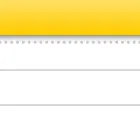Zim vs OutWiker
Compare features, pricing, and capabilities to find which solution is best for your needs.

Zim
Zim is a powerful, open-source graphical text editor designed for maintaining a personal wiki or notebook. It allows users to organize notes, ideas, and various types of information in a hierarchical, interlinked structure, similar to a wiki. by Jaap G Karssenberg

OutWiker
OutWiker is a portable, tree-structured note-taking application that allows users to organize information hierarchically. Functioning as a personal wiki or outliner, it provides a simple yet powerful way to manage notes, documents, and ideas in a flexible, offline environment. by jenyay
Comparison Summary
Zim and OutWiker are both powerful solutions in their space. Zim offers zim is a powerful, open-source graphical text editor designed for maintaining a personal wiki or notebook. it allows users to organize notes, ideas, and various types of information in a hierarchical, interlinked structure, similar to a wiki., while OutWiker provides outwiker is a portable, tree-structured note-taking application that allows users to organize information hierarchically. functioning as a personal wiki or outliner, it provides a simple yet powerful way to manage notes, documents, and ideas in a flexible, offline environment.. Compare their features and pricing to find the best match for your needs.
Pros & Cons Comparison

Zim
Analysis & Comparison
Advantages
Limitations

OutWiker
Analysis & Comparison
Advantages
Limitations
Compare with Others
Explore more comparisons and alternatives

















